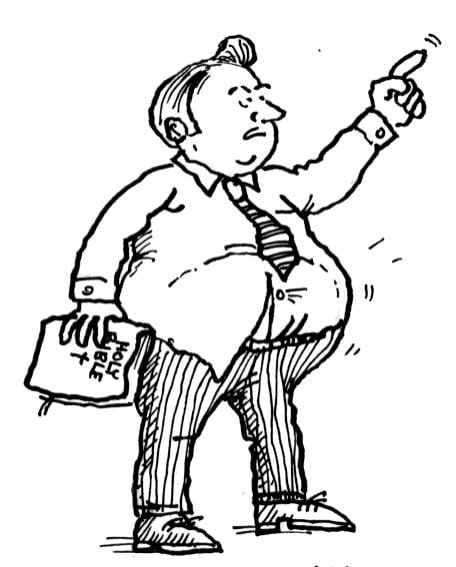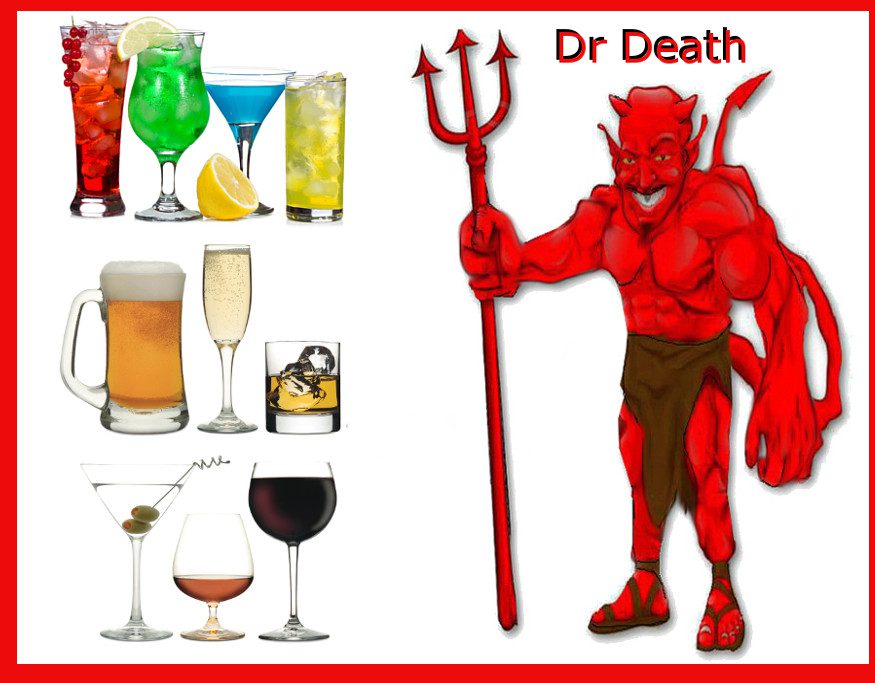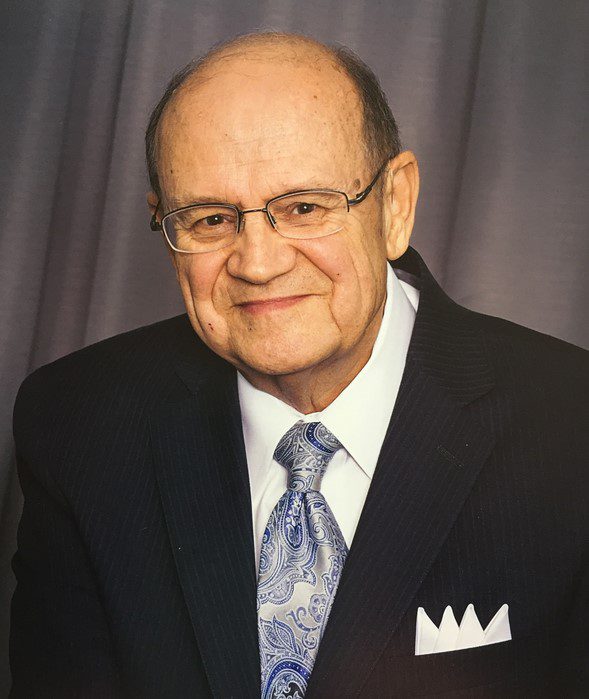
Independent Fundamentalist Baptist (IFB) preachers love to preach on “sin.” Thanks to their extra-Biblical rules and personal interpretations of the Bible, these preachers often have long lists of behaviors that are deemed “sinful.” No two preachers have the same sin list. Many IFB preachers believe it is a sin for women to wear pants, while other preachers believe it is okay as long as the pants aren’t form-fitting. The same could be said about whether it is a sin for men to have long hair, mustaches, or beards. Here’s one thing I know: take any behavior humans practice and it is likely you will find an IFB preacher somewhere who believes that behavior is a horrific sin against his version of the Christian God. (See An Independent Baptist Hate List and The Official Independent Baptist Rulebook.)
IFB preachers are big on having “proof” for their beliefs. I attended and pastored IFB churches well into my late 30s, and I said and heard preachers say countless times, The BIBLE says or GOD says . . . These anti-sin crusaders are adept at molesting the Bible, grooming it so it will comply with their every authoritarian, controlling wish. Being raised in such an abusive environment conditions people in such a way that they believe the abuse is normal; that whatever the preacher says is true, straight from the mouth of God.
Take Ephesians 4:27; six little words that IFB preachers turn into rants against a plethora of behaviors they deem sinful. The verse says, neither give place to the devil. In other words, don’t let the Devil gain access, influence, or control your life. Seems pretty straightforward advice for people who believe there’s a Devil and hosts of demons walking to and fro on the earth, seeking whom they may devour — as the Bible says in I Peter 5:8. Unfortunately, however, many IFB preachers use this verse as a jumping off point, launching themselves into slobbery shouts against behaviors they deem to be “giving place to the devil.” Years ago, I heard a notable preacher at a pastor’s conference in Columbus, Ohio, preach on Ephesians 4:27. He made no attempt to exegete the text, nor did he pay any attention to its context. He had a truckload of axes he needed to grind, so after reading these six little words, he launched into a forty-minute sermon that labeled numerous human behavior sinful, including attending the wrong college, using the wrong Bible, or fellowshipping with the “wrong” preachers. As was the custom at such meetings, the preacher of the hour received countless AMENS and YOU PREACH IT, BROTHER! Never mind the fact that his sermon was thirty seconds of Bible and thirty-nine minutes thirty seconds of bullshit and personal opinion.
Another six-word verse used in the aforementioned way is 1 Thessalonians 5:22. Abstain from all appearance of evil, the inspired, inerrant King James Bible says. These kinds of verses are what I call a catch-all verses, verses meant to cover bad behaviors not explicitly mentioned in the Bible. I played high school basketball. My coaches taught me to avoid doing things during games that looked like fouls. If it looks like a foul, it is a foul, I was told. One of the most irritating moments in a game is to be called for a foul you didn’t commit. I may not have committed the foul, but in the eyes of the official it looked like I did, and that’s all that mattered (I much preferred the no blood, no foul rule of summer playground games). The six words of 1 Thessalonians 5:22 are the IFB version of if it looks like a sin, it is a sin.
For many years — eleven, to be exact — I picked up an older woman at her home and drove her to church. She was legally blind, and was twenty years older than I. She was not in the least attractive — at least to me, anyway. For the five years our church operated a Christian school, I would pick up this woman so she could watch our children while Polly and I taught classes. She was a wonderful, delightful woman who would do anything for us. Tragically, she was tragically killed a few years back in an automobile accident.
One of the resident Pharisees in the church took issue with me picking up this woman for church. She and her husband even floated a rumor that suggested this woman and I were having an affair. The legs of this rumor were 1 Thessalonians 5:22 — abstain from all appearance of evil. In the minds of accusers, the mere fact that a woman who was not my wife was riding in my car was sufficient grounds to accuse me of impropriety. This type of slander happened several times during the twenty-five years I spent in the ministry. I had many faults, but having affairs was not one of them.
I refused to let such people turn my good works into “sins.” I knew that no matter what I did, someone might consider a certain behavior of mine sinful. Some colleagues of mine were so paranoid about giving the appearance of evil that they, for example, wouldn’t go a movie theater to see a G-rated kid’s movie because the theater also played R-rated movies. And if they happened to be seen by a church member coming out of the theater, why, that person might think they were watching one of the R-rated movies. This same logic applied to renting movies. I knew pastors who wouldn’t frequent a video store lest someone see them and think they were renting movies other than Bambi or Five Mile Creek. One former friend of mine, to this day, won’t eat in restaurants that serve alcohol. Why? Abstain from all appearance of evil. This same man would buy groceries at stores that sold booze and buy gasoline at convenience stores that sold beer and Hustler, but he refused to enter a restaurant that served the devil’s brew. This man loved to eat, especially meat, but because he was so worried about giving the appearance of evil that the best steak he ever ate was a gristle-filled, packing-grade, beat-all-to-shit piece of meat at Ponderosa — or as we in our home called the place, a-pound-a-grossa.
Another pertinent passage is 1 Corinthians 6:19-20:
What? know ye not that your body is the temple of the Holy Ghost which is in you, which ye have of God, and ye are not your own? For ye are bought with a price: therefore glorify God in your body, and in your spirit, which are God’s.
According to many IFB preachers, 1 Corinthians 6:19,20 teaches that the bodies of Christians are temples in which God, the Holy Ghost lives. Non-Christians, of course, are empty temples in need of filling. This is another one of those verses that is used as a catch-all. Every IFB preacher has his own list of behaviors that he believes pollute the temple of God. The two biggies? Alcohol and tobacco.
There’s a trend in Evangelical circles for believers to trim the sharp edges of their social prohibitions. Drinking alcohol and smoking are two “sins” that have now been, in the eyes of some Evangelicals (especially Calvinists), deemed okay for Christians to do. Over the years, I have received numerous emails from Evangelicals wanting to impress me with their “worldliness.” These sinners want me to know that they are NOT like the Evangelicals I write about, that they have the freedom to drink an occasional glass of wine and smoke a stogie. In their minds, these behaviors only become sin when done to excess — with excess never being clearly defined. Evidently, one man’s excess is another man’s let’s party liberty. Jesse Morrell, an open-air (street preaching) missionary, released a two-minute YouTube video about cigar-smoking Calvinists (which is no longer available). Morrell will have none of this. In his mind, any form of smoking is s-i-n, an affront to his God. Every time someone takes a puff on a cigar, he is polluting God’s temple and aggravating the Holy Spirit’s asthma.
Growing up in the IFB church movement, I heard a lot of sermons about not polluting the temple of God. Believing that God lived inside — oh where, oh where does he live? and surely there’s a sex joke that needs telling about God being inside you — of everyone who was born again, preachers would preach thunderous sermons against drinking alcohol, smoking, or taking illegal drugs. I heard several preachers who even questioned taking prescription drugs, calling on sanctified followers of Jesus to ask themselves, do I really need to take these pills? I knew people who suffered from severe pain because they refused to take doctor-prescribed pain medications. Fearing addiction, polluting the temple of God, or wanting to show that they could valiantly suffer, these Christians chose to have bodies wracked with pain rather than risk God getting high. (Please see Ken Ham, Answers in Genesis, Dinosaurs, and the Sin of Smoking.)
What I found ironic is that many IFB preachers are overweight. Some of them were as obese as I now am. These overweight, out-of-shape consumers of way too many fried chicken legs and slices of cherry pie would, using 1 Corinthians 6:19,20, rail against drinking alcohol and smoking cigarettes — smoking won’t send you to Hell, but it sure will make you smell like you have already been there — while at the same time never mentioning overeating. My explanation of this fact back in my preaching days was simple: virtually every human behavior was a sin, so overeating was the one sin Baptists could indulge in without feeling guilty. IFB congregations love their chicken dinners, potlucks, fellowship meals, and numerous other food-focused events. Bless God, beer and Marlboros have never touched their lips, but fat-laden, high-calorie food? Bring me another plate, Sister Maybelle. It’s time to feed the Holy Spirit!
All that this shows, of course, is that the Bible can be used to “prove” anything is a “sin,” and once something has been deemed sinful, IFB preachers feel it their duty to regulate and control human behavior, making sure church members toe the line. Never mind the fact that most of the “sins” IFB preachers preach against are not mentioned in the Bible, or that some of the behaviors now deemed sinful were practiced by none other than Jesus himself two thousand years ago. Yes siree, Bob, Jesus drank alcoholic wine. I bet the man, the myth, and the legend even over-indulged a time or two, or fifty. It’s a Biblical and historical fact, yet some IFB preachers will go to great lengths to prove that Jesus drank Welch’s grape juice, and not fermented wine. The Bible speaks of Jesus hanging out with sinners, but he brought a juice box so he didn’t have to drink Boone’s Farm, right? Such is the logic found in many IFB churches.
It is said that Baptist Fundamentalism is no fun and all mental. Sadly, this line accurately describes what goes on in many IFB churches. Imagine being immersed in such a culture your entire life, and then one day waking up and realizing you were in a cult. That describes my wife and me. Polly was in her forties before she ever wore pants. We lived in Yuma, Arizona, at the time. One day, we were at Target and I suggested to Polly that she buy a pair of capri pants. Why, you would have thought I had asked her to strip and run naked through the store! After a bit of mental strong-arming, I convinced Polly to “sin.” No lightning from Heaven, no being struck dead by the Evangelical God. Polly survived, and now it’s to the point where I say, it would sure be nice to see you in a dress every once in a while. 🙂
Polly and I faced many such conflicts once we began moving away from Fundamentalism. The list of things we first started doing in our forties and fifties is long: drinking alcohol, watching R-rated movies, going to the movies, listening to secular music, and expanding our sexual practices, to name a few. Every “sin” abandoned brought first a sense of guilt, and then relief. For Polly and me, we are, in many ways, experiencing for the first time things that normal people experienced as teenagers or young adults. Our only regret is that we waited this long to enjoy life. Well, that and wishing we had young bodies to enjoy the carnal “sins” of our late-in-life teenage years. 🙂
This post has now passed the two-thousand-word mark, so it’s time for me to stop circling the runway and land this plane. Please share in the comment section your own experiences growing up in IFB/Evangelical churches. What were “sins” back in the day that you now heartily and lustily commit?
Bruce Gerencser, 68, lives in rural Northwest Ohio with his wife of 47 years. He and his wife have six grown children and sixteen grandchildren. Bruce pastored Evangelical churches for twenty-five years in Ohio, Texas, and Michigan. Bruce left the ministry in 2005, and in 2008 he left Christianity. Bruce is now a humanist and an atheist.
Your comments are welcome and appreciated. All first-time comments are moderated. Please read the commenting rules before commenting.
You can email Bruce via the Contact Form.


